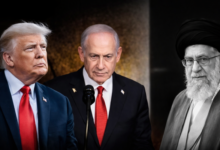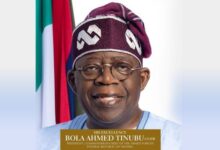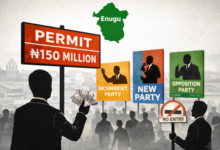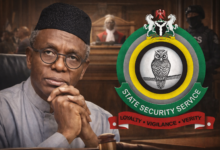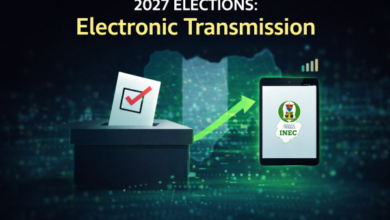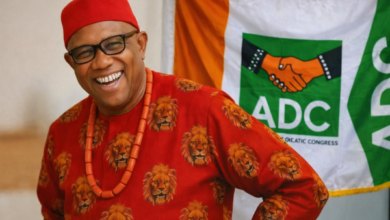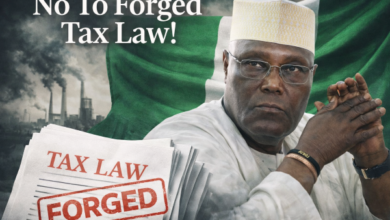Edo Governorship: Ighodalo Slams Supreme Court Verdict, Calls Election ‘A Coordinated Robbery’
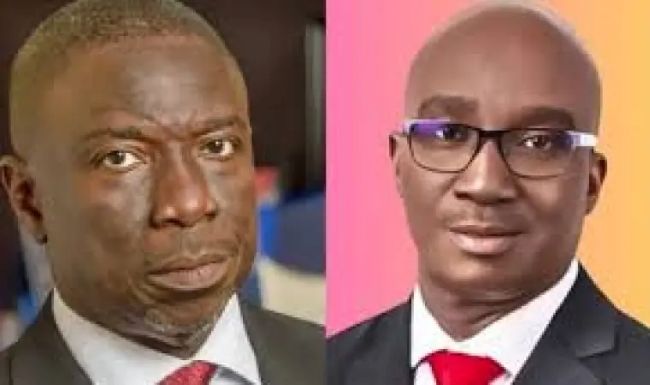
Asue Ighodalo condemns apex court ruling upholding Okpebholo’s election, says judgment undermines public trust and democracy. Legal, political, and economic implications dissected.
In a stinging rebuke of Nigeria’s judiciary, Asue Ighodalo, the People’s Democratic Party (PDP) candidate in the September 2024 Edo State Governorship Election, has condemned the Supreme Court’s dismissal of his appeal, describing the election process and its judicial validation as “a robbery—coordinated, deliberate, and tragic.”
While acknowledging the finality of the apex court’s decision, Ighodalo, in a statement personally signed and released on Thursday, declared that “what was delivered was not justice.” The senior lawyer and technocrat-turned-politician expressed a deep sense of betrayal—not just by those who allegedly rigged the elections, but by the very institutions constitutionally empowered to protect the sanctity of democracy.
“I do not and cannot pretend that what was delivered amounts to justice… This was no election. It was a robbery. And now, it has been tragically validated by the highest court in the land,” Ighodalo wrote.
His remarks followed the Supreme Court’s unanimous decision to uphold the election of Senator Monday Okpebholo of the All Progressives Congress (APC) as Governor of Edo State, affirming earlier judgments by the Election Petition Tribunal and the Court of Appeal.
The Legal Context: Finality vs. Justice
Delivering judgment, Justice Garba Lawal of the Supreme Court dismissed the PDP’s appeal as lacking in merit. Ighodalo’s legal team, led by Ken Mozia, SAN, had asked the court to overturn Okpebholo’s victory on grounds that their client received the majority of lawful votes. However, the Independent National Electoral Commission (INEC), represented by Kanu Agabi, SAN, argued that the PDP’s legal approach was contradictory. They had declared the election unlawful due to alleged non-compliance with the Electoral Act, yet sought judicial affirmation of their candidacy.
This inconsistency, according to INEC and the court, undermined the credibility of the petition.
Legal analysts say the case underscores the importance of consistency in legal pleadings, especially in election litigation, where both procedural and substantive flaws can derail cases, even when public sentiment leans in the appellant’s favour.
Judgment Reverberates: Institutional Trust at Stake
For Ighodalo, however, the implications go far beyond legal technicalities. His scathing criticism framed the judgment as symptomatic of deeper institutional decay in Nigeria’s electoral and judicial systems.
“We are told your voice does not matter. That your freely given mandate can be trampled without consequence… To every woman and man who campaigned, voted, and believed—this is not the end. Our collective strength remains unbroken,” he said in an emotionally charged address to supporters.
Former Governor Godwin Obaseki echoed the sentiment, warning that the validation of what he called a manipulated process poses a “grave danger to Nigeria’s democracy.” While pledging allegiance to the rule of law, Obaseki emphasized that the manner of the Edo Governorship election and subsequent judicial approvals could erode citizens’ faith in democratic institutions.
Okpebholo Responds: “Victory Is a Call to Unity”
In contrast, Governor Okpebholo struck a reconciliatory tone, hailing the Supreme Court ruling as a “higher call to service and unity.” Speaking from Benin City, he emphasized his administration’s focus on security, education, youth empowerment, healthcare, and infrastructure, calling for all stakeholders—regardless of political affiliation—to join hands in moving Edo forward.
“The elections are over. Now is the time to govern. Let us put the bitterness of the past behind and work for a united Edo,” Okpebholo stated.
President Bola Ahmed Tinubu also weighed in, congratulating the governor and urging him to use the victory as a platform for accelerated development. In a statement signed by Presidential Spokesperson Bayo Onanuga, Tinubu urged the APC in Edo to remain united and focused on delivering good governance.
BRANDECONOMY ANALYSIS: Between Legal Finality and Democratic Legitimacy
This legal and political episode in Edo State is not just a test of Nigeria’s electoral jurisprudence—it is a stress test for public trust in the democratic process. The optics of a seemingly flawed election process gaining judicial approval risks alienating young voters and reform-minded citizens who believe in the power of the ballot.
As Nigeria looks ahead to future elections, this case reaffirms the urgency of electoral reform, the need for greater judicial transparency, and civic education to help voters and political actors understand the interplay between law, legitimacy, and leadership.
Key Takeaways:
- The Supreme Court’s decision reaffirms the electoral victory of Governor Okpebholo, closing the chapter on legal disputes over the 2024 Edo governorship election.
- Asue Ighodalo and the PDP insist the election was compromised and that the courts have failed the people.
- Public discourse now shifts to governance, citizen trust, and the health of democratic institutions in Nigeria.
SEO Keywords:
Edo Supreme Court ruling, Asue Ighodalo reaction, Edo 2024 governorship election, Monday Okpebholo victory, PDP APC legal battle, Nigeria election judicial review, Edo State democracy, electoral justice in Nigeria, Ighodalo Supreme Court appeal, Obaseki democracy warning, INEC electoral inconsistency, Tinubu on Edo election.


